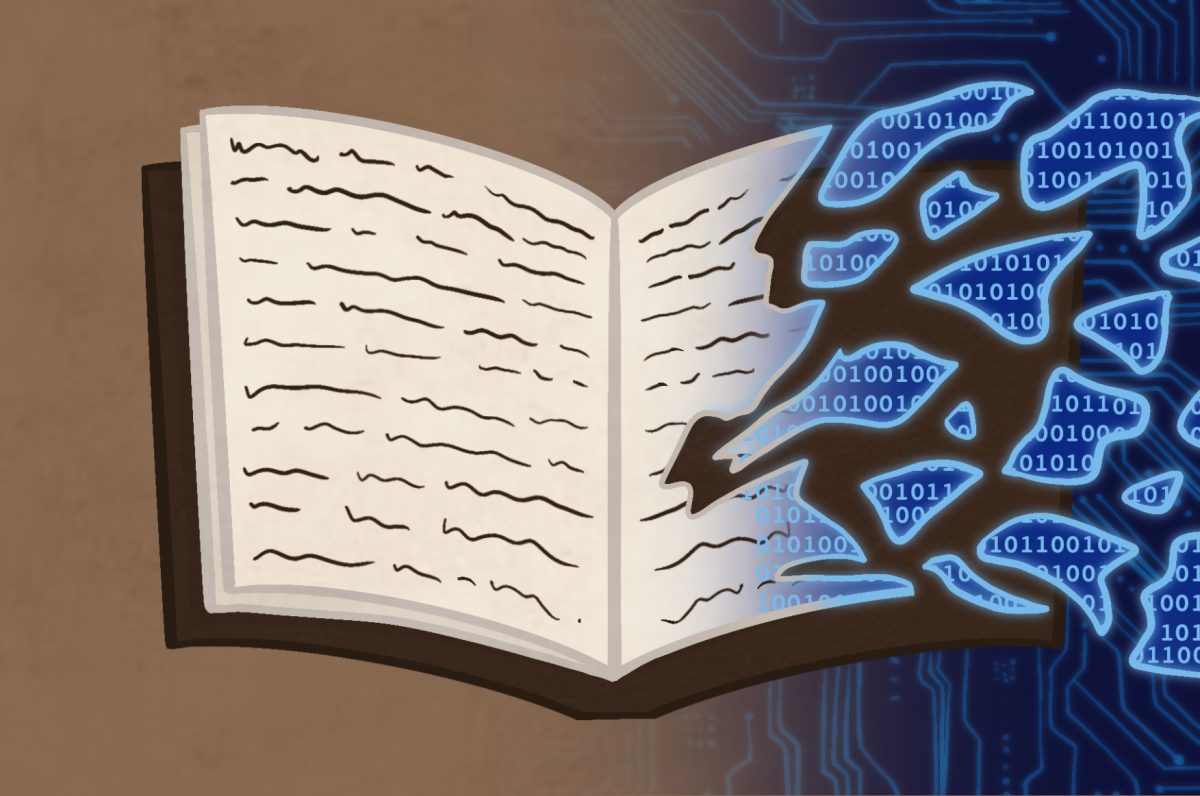The rapid integration of technology and artificial intelligence is revolutionizing the study and education of history, reshaping how we access, interpret and preserve the past.
Now, if that opening sounded a little robotic to you, that’s for good reason.
ChatGPT wrote that.
I gave the resource a simple prompt: “Write me a strong short opening sentence of an opinion column analyzing the impact technology and artificial intelligence have had on studying and teaching history.”
As students, we’ve all heard of ChatGPT and most likely used it before, whether for use in an assignment or just to mess around.
As a history major, I wondered what some of my professors might think of the service.
Charles Briggs, a senior lecturer and medieval scholar in the history department, does not feel directly influenced by the rise of this new technology. Instead, he said he was more concerned with it.
As the technology becomes more and more prevalent in universities across the country, the concern grows for many other professors as well, according to a Sept. 13, 2023 Inside Higher Ed article.
“From my knowledge, nobody in the field of history is embracing or welcoming ChatGPT,” said Briggs.
Generative artificial intelligence personally impacts the ability to competently read and analyze sources, a key skill in the field.
“One of the key competencies that a university-educated person needs to have is the ability to think in complex ways,” he said. “I think ChatGPT is something that can seriously mess with this ability.”
On the other hand, Steve Zdatny, a history department professor who researches modern French and European history, views generative AI a little differently.
“I generally don’t worry about it; the students who cheat are the ones being harmed,” said Zdatny.
In a similar sense to that of Briggs, he is not fully worried about it yet.
“I had an idea to use AI for a lesson of mine. I was going to have my students critique a paper written by ChatGPT arguing that the Treaty of Versailles was a Carthaginian Peace,” Zdatny said.
Using ChatGPT as a teaching tool enriches students’ ability to argue and critique works and saves a little bit of the professor’s time as well.
“It’s efficient: stop pretending we can defeat the monster,” he said.
The resource can be an efficient way to speed up a process and allow wider access to some information.
Historians studying certain documents have begun utilizing AI resources to draw a broader connection of documents across history rather than being limited by the view of just one document at a time, according to an April 11, 2023 MIT Technology Review article.
However, this method introduces distortions of its own, including a risk that the machine learning will include biases or falsifications in these historical records, posing an issue in this method of utilization, according to the same Technology Review article.
About 80% of students do not do their assigned readings, according to an Aug. 23, 2021 from The Conversation.
Various students will turn to generative artificial intelligence sources, like ChatGPT, for summaries or whole essays about books instead of doing the required reading, according to the same Inside Higher Ed article.
The origin of the decrease in reading rates can be attributed to various factors.
In K-12 schooling, many students were instructed on how to read short passages and write about them for standardized testing instead of entire novels, according to the same Inside Higher Ed article.
Both the rise of social media and the COVID-19 pandemic have both contributed to a decrease in attention spans for young adults, according to the same article.
This may seem to be no big deal now but poses a large problem for the future.
A reliance on generative AI for writing and reading can significantly inhibit one’s creativity and ability to think critically.
Reading the works of other humans allows us to include this idea of an “other,” such as a new idea or a writing technique, according to a Sept. 22, 2023 Psychology Today article.
Deep reading results in human self-reflection, unexpected insight and empathic understandings of works with a greater context than a generative AI’s quick and on-command summaries, according to the same Psychology Today article.
Writing is a necessary skill and is integral to allowing us to externalize and develop our thinking, according to the same Psychology Today article.
Using generative AI to edit writing submits humans to a more passive role in the creative process as we are just managing the work instead of creating it, which could further deteriorate the human ability to critically read and compose prose, according to the same article.
“If the educated class loses the ability to write prose well, they may lose the ability to think and form complex thoughts,” Briggs said.
Our society is built on these abilities and skills.
Generative AI is not going anywhere. All we can do is implement it in helpful and non-harmful ways to aid in the future of education.
The Vermont Cynic accepts letters in response to published material as well as any issues of interest in the community. Please limit letters to 350 words. The Vermont Cynic reserves the right to edit letters for length and grammar. Please send letters to cynicalopinion@gmail.com.














